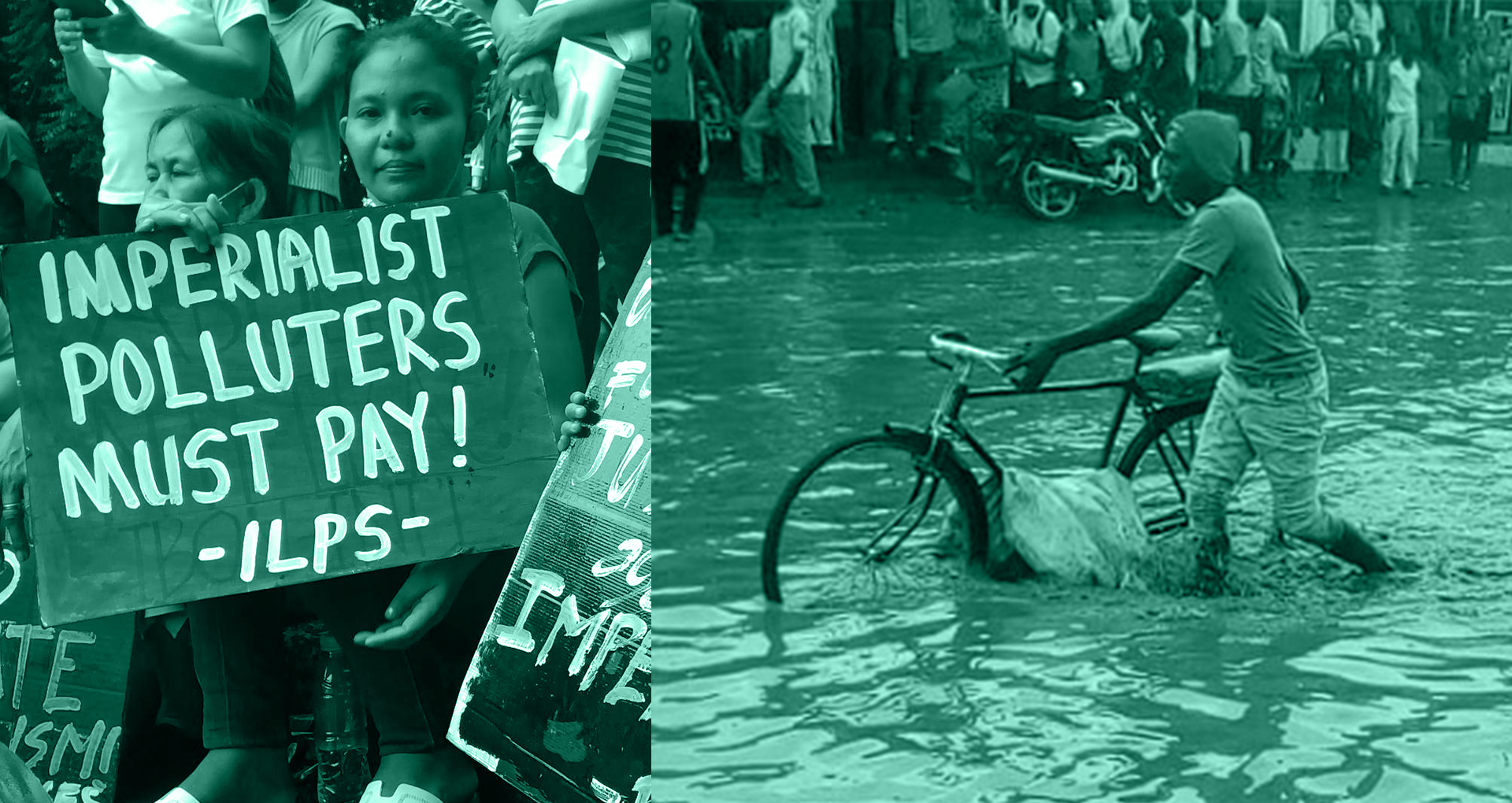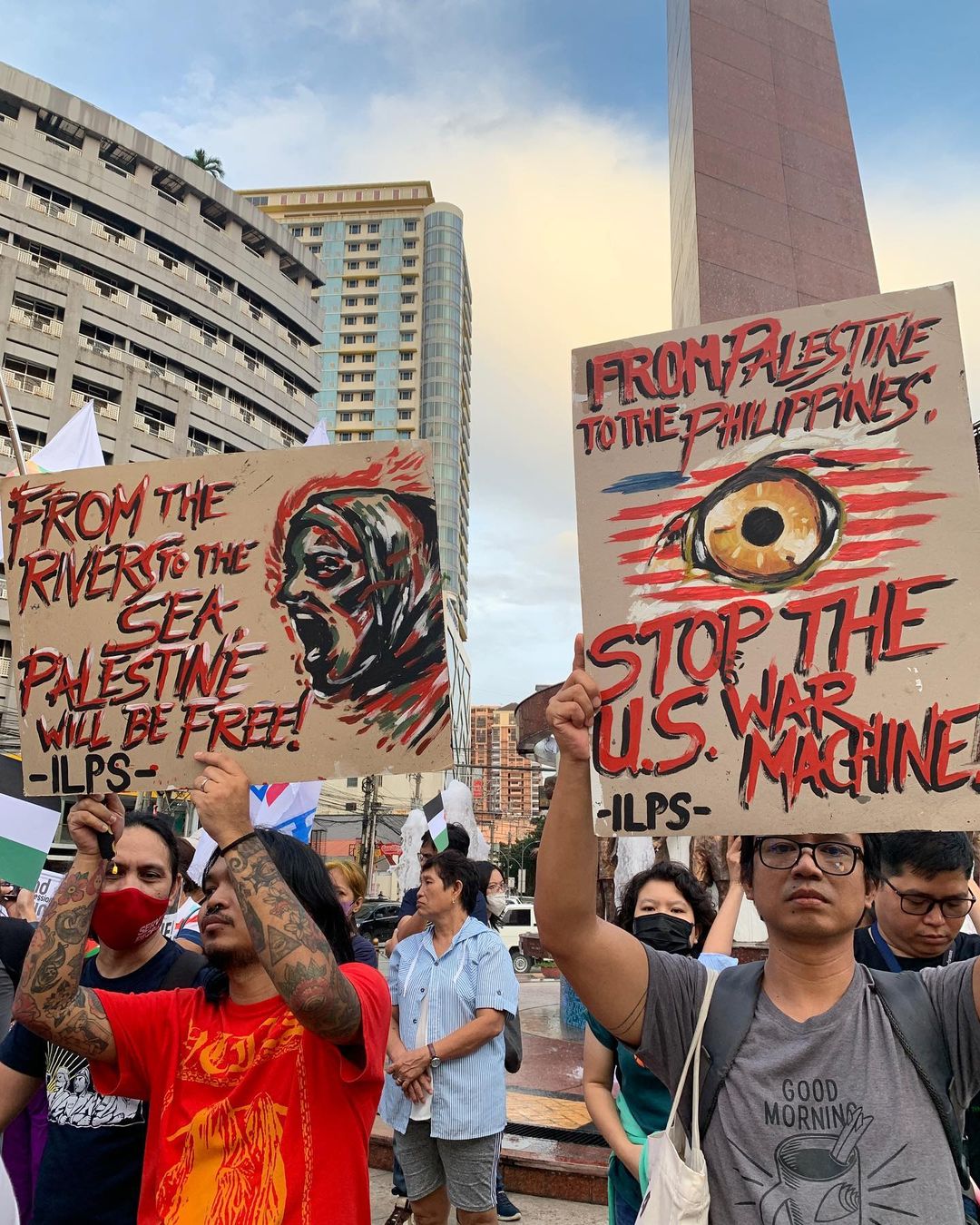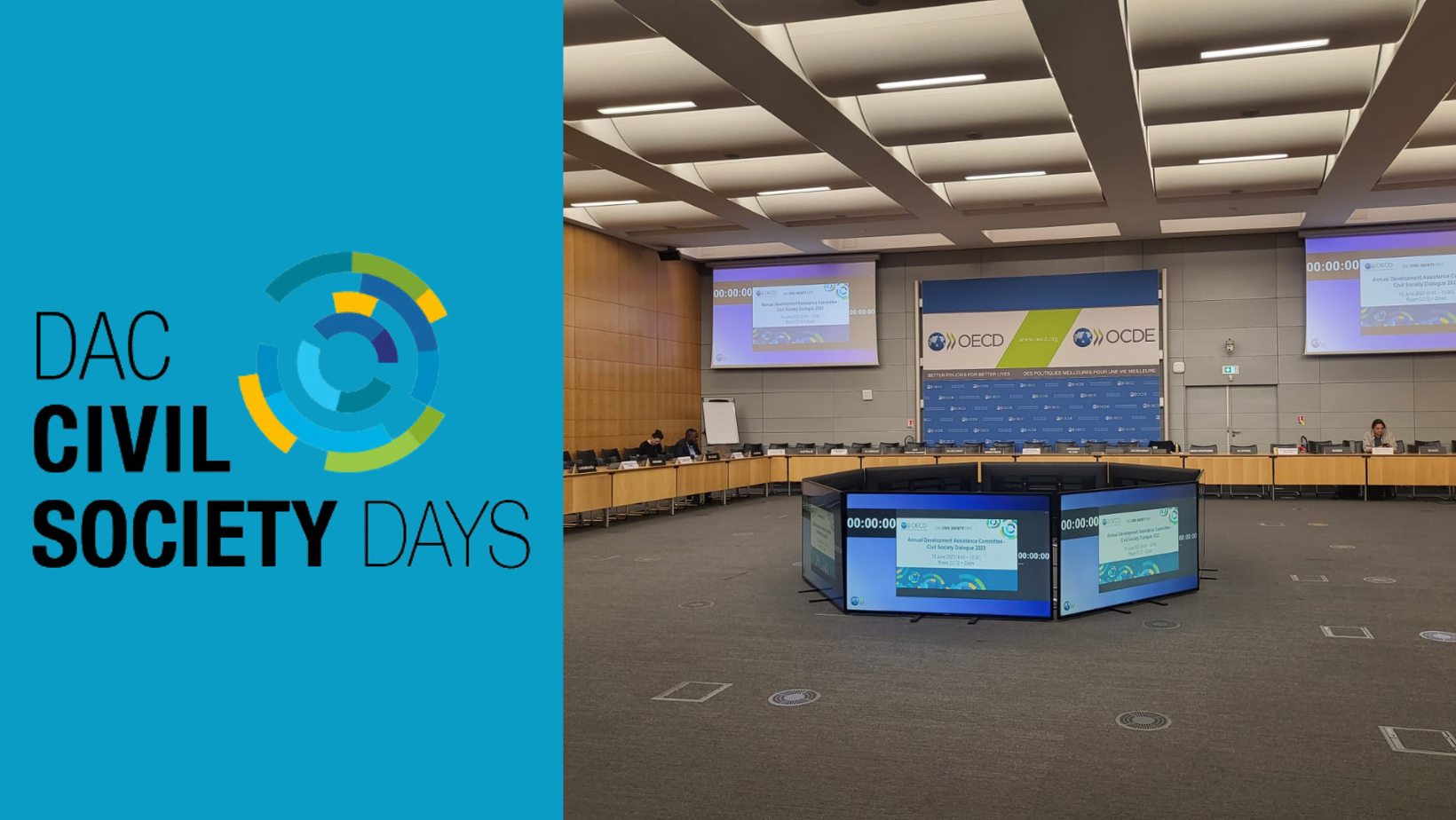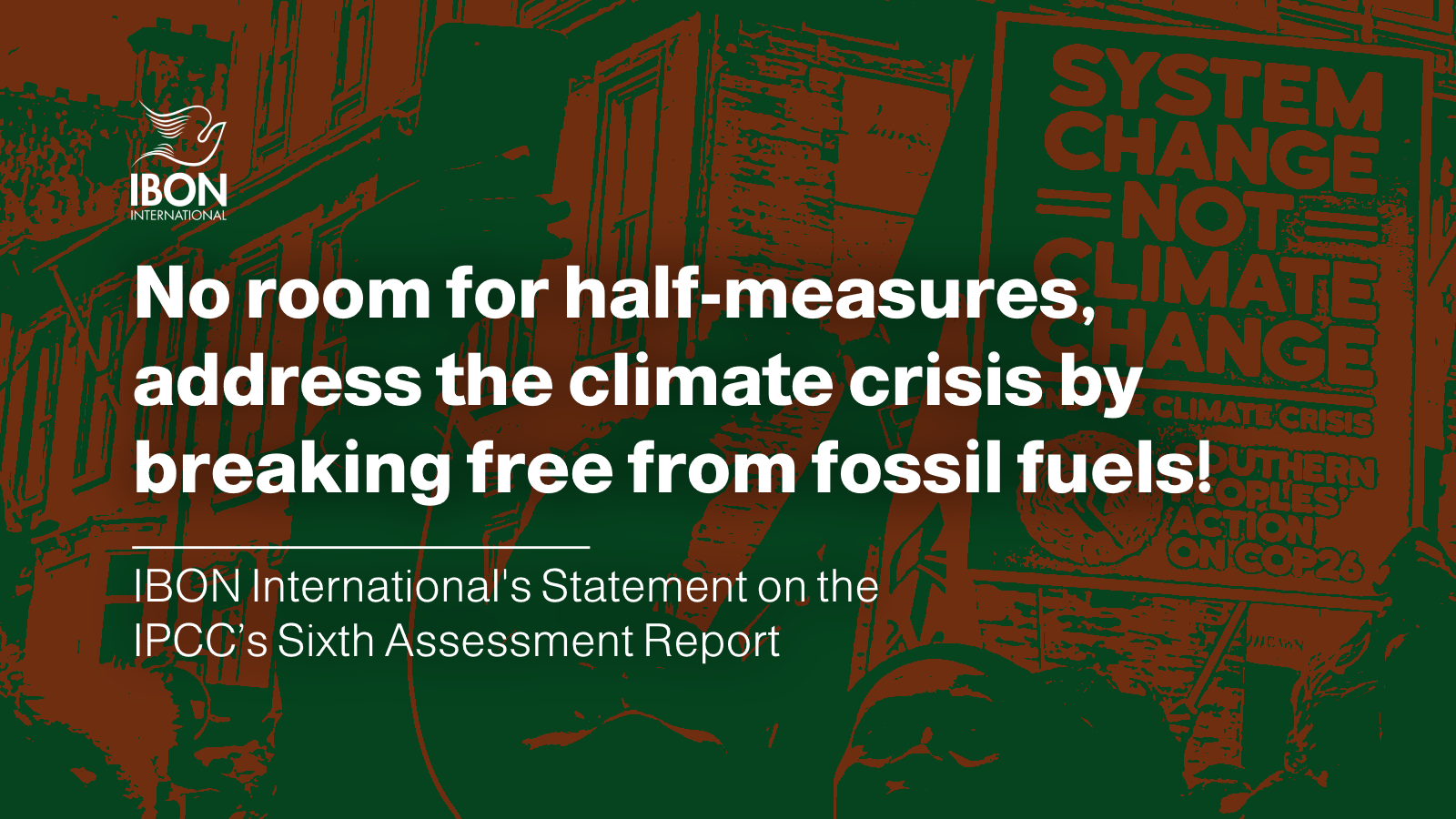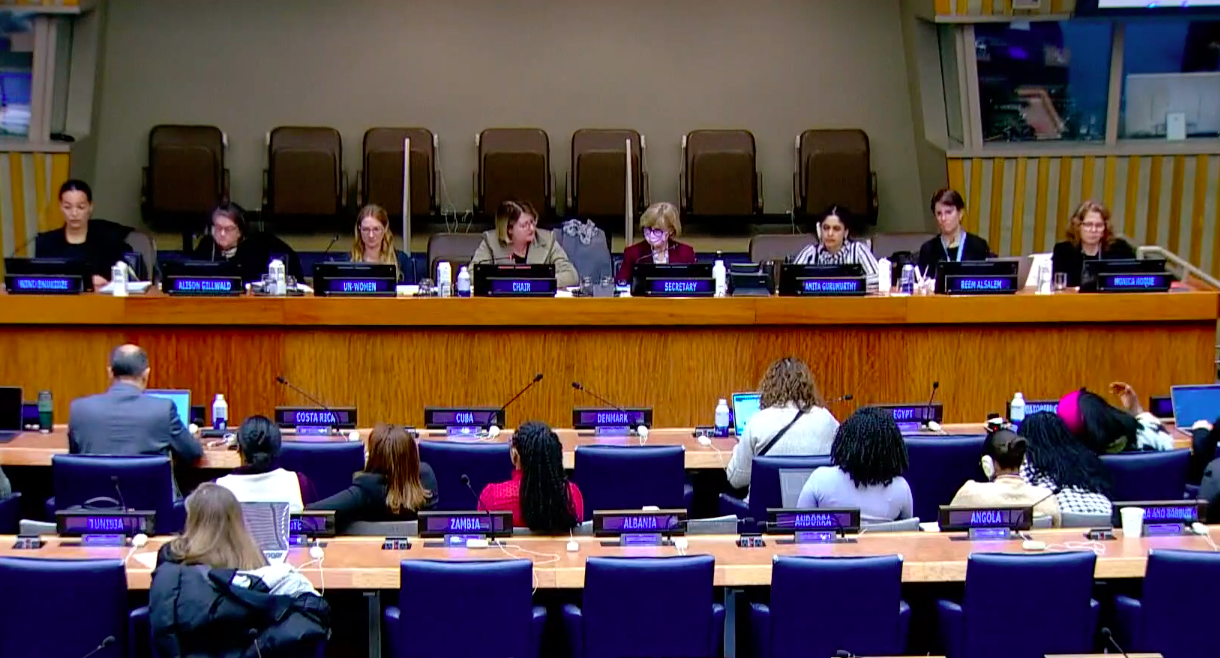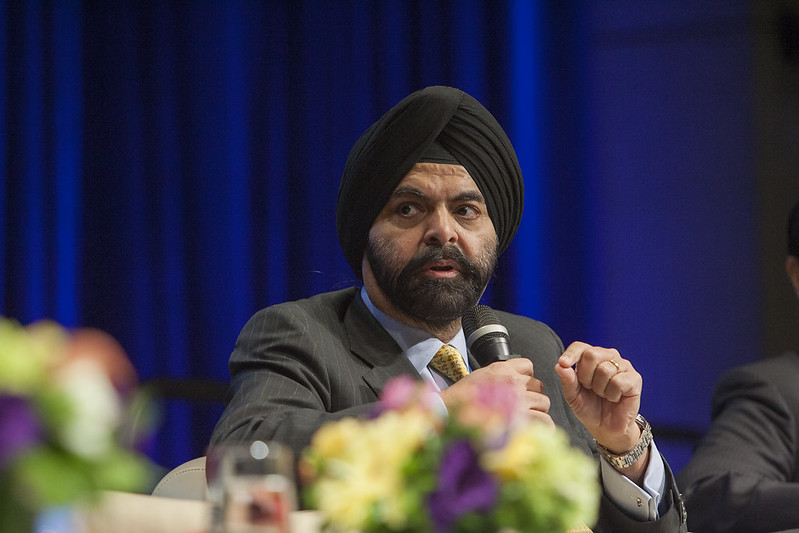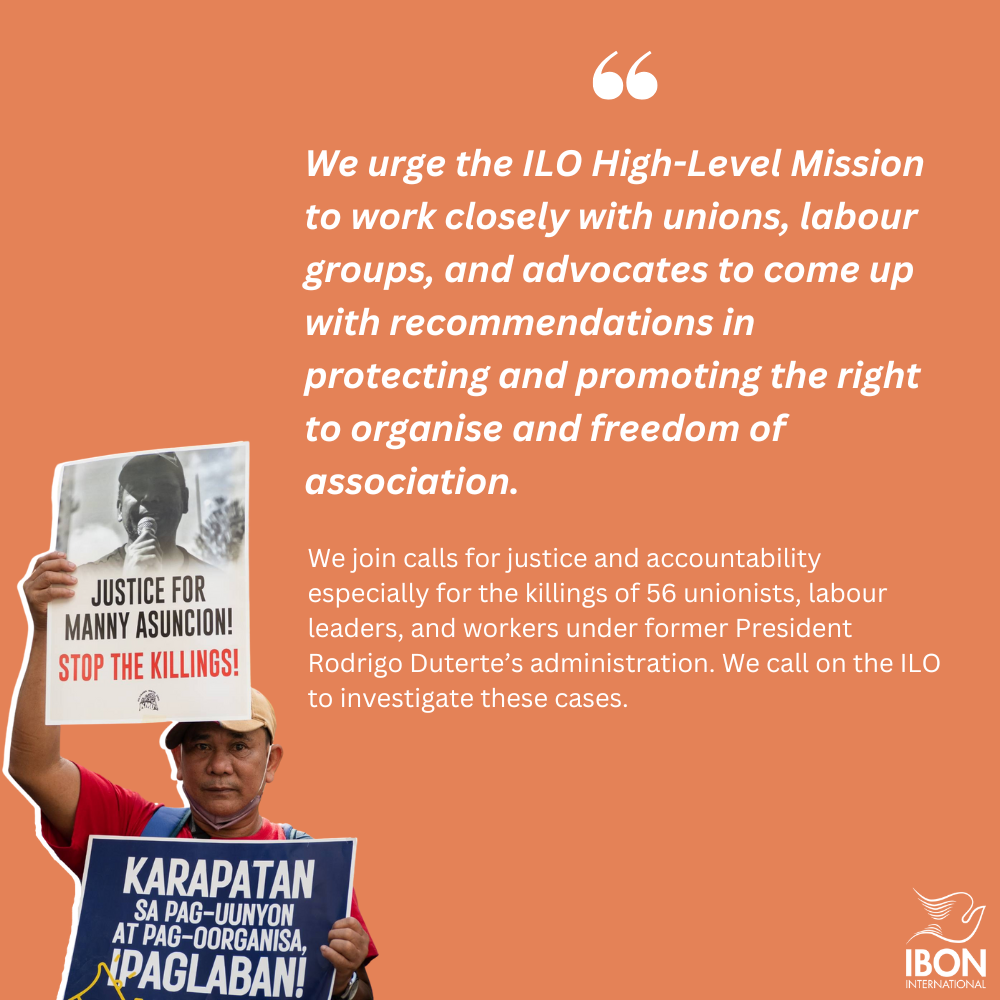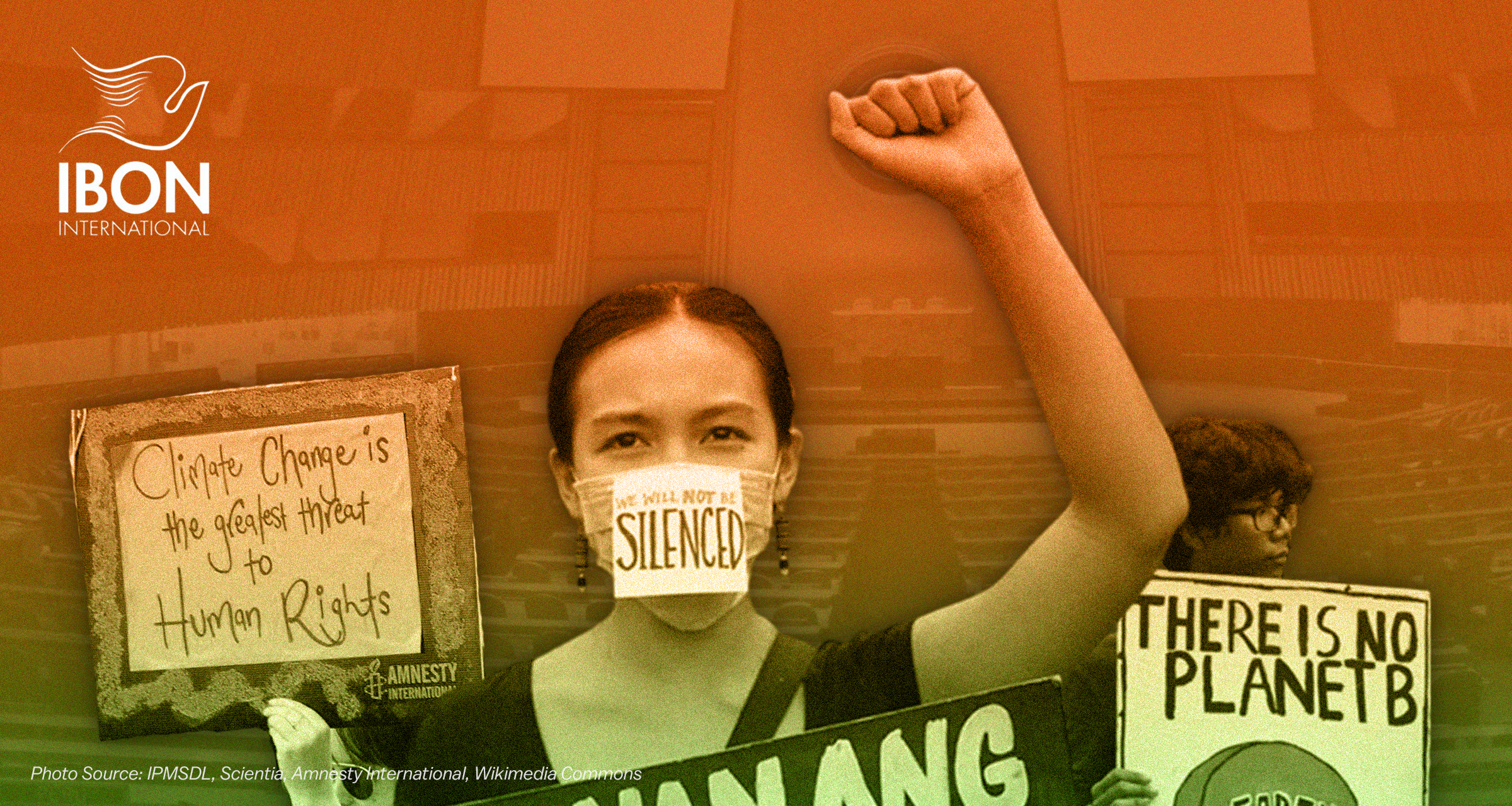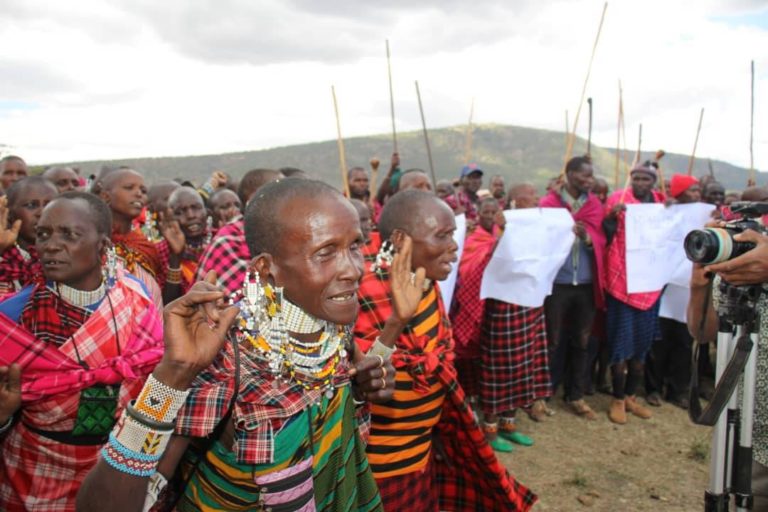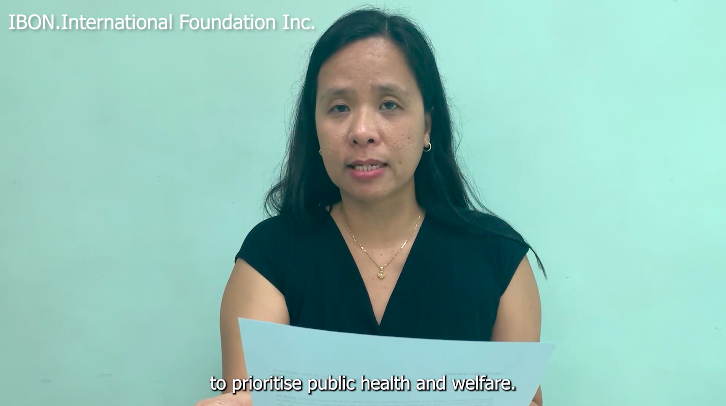IBON International just concluded a study on community practices on Sustainable Consumption and Production (SCP) in Kenya and the Philippines. The study features people-powered solutions to poverty, powerlessness, and environment degradation caused by economic policies that sacrifice people’s rights over profit. The full results will be available by the end of March 2020. This following article, derived from the SCP study, presents the important roles that women play in the said people-powered solutions.
Indigenous and peasant women from Kenya to the Philippines have been trailblazing alternatives that nurture the people and the planet towards a sustainable future.
In the face of multiple evictions, loss of their hunting and gathering grounds, the Ogiek women of Kenya along with their people are asserting their traditional way of beekeeping. This livelihood not only ensures their subsistence but is also a process of reclaiming access to their ancestral territory and their identity as Ogiek. The Ogiek is a group of Indigenous Peoples who have been living for centuries as hunters and gatherers in the area around and in the Mau Forest Complex of Kenya.
In the Cordillera, Philippines, the threat of losing ancestral lands to the hands of the state and corporations did not deter indigenous women of Itogon, Benguet. Through decades of collective actions, defying eviction orders, and practicing several traditional small-scale mining methods, they have, up to this day, thwarted every move of mining corporations to remove them from their patented mining claims. The Indigenous Peoples of Itogon are Ibaloys and Kankana-eys. The Ibaloy were originally hunters, gatherers and swidden farmers until they found “balitok” (gold) which started their traditional small-scale mining methods.
The Luo people of Katuk Odeyo in Kenya seemed to be pushed to the wall with widespread hunger, malnutrition, and HIV (human immunodeficiency virus) infection amid a harsh agricultural environment, until they came together and painstakingly turned the situation around. The Luo women helped bring back soil fertility through innovative ways of agriculture that are suitable for the type of soil they have. The process not only addressed malnutrition, HIV infection, and hunger but also empowered the women to break their patriarchal relations when it comes to land ownership. The Luo people are an ethnic group in western Kenya and traditionally made a living through fishing, farming and herding.
In the south of the Philippines, Lumad women are braving forced evacuations and other human rights abuses from state actors, to pursue their children’s right to education. These Lumad community-led schools use a curriculum that is responsive to a future they want for their people. Being deprived of education for so long, Lumad women leaders see education as a powerful tool to defend their ancestral land, the Pantaron range, from the hands of logging concessions, plantations and mining corporations. Lumad is a collective term for non-Christianized and non-Moro Indigenous Peoples of Mindanao, Southern Philippines composed of 13 ethnolinguistic groups which are among the poorest minority groups in the country.
Women in the province of Cavite, Philippines are leading collective land cultivation called Bungkalan (“bungkal” means “to till”) to reclaim land ownership in the Lupang Ramos estate. They have been braving threats of demolition, arrests, and other harassment from police authorities, and security forces of the estate in their fight for their right to till. They have been employing agro-ecological farming to reinvigorate the soil that has long been degraded by decades of monocrop farming.
These initiatives where women are taking on key roles are telling of boundless alternatives which go beyond the United Nations (UN) yardsticks. They are reflections of a sustainable future that people on the ground are courageously building regardless of how dangerous they can be. These are struggles against the neo-liberal economic policies that put profit over people.
Trailblazing boundless alternatives
The Ogiek women
The Mau Forest of Kenya used to be the hunting and gathering grounds of the Ogiek Indigenous Peoples until repeated evictions were enforced since the British colonial era. They were gradually pushed out of the forest through government policies. Once they lost their control over the Mau forest, corporate plantations came in which resulted to disappearance of bees due to the depleting vegetation.
In the fight to regain control over their remaining territory, Ogiek women along with their male counterparts led a project to reinvigorate their traditional beekeeping practice. This practice also revived their traditional ways of managing their resources such as controlling the tree cutting and encouraging planting traditional trees that are particularly beneficial for beekeeping. Women started educating the youth on their traditional knowledge of resource management, peace keeping practices, and all facets of their cultural identity as Ogiek.
The Luo women
In the Kisumu County of west Kenya lies the world’s largest fresh water lake called Lake Victoria. This is the home for Luo people particularly in Katuk Odeyo village. But the presence of the fresh water lake belies the true condition of the Luo people. Poverty, hunger, malnutrition, and HIV are widespread. The soil is untillable and worsened by climate change. The Luo people describe their soil to be semi-arid, and rains are never enough for agricultural activities. The continued soil erosion has formed deep gullies in the area, displacing many residents.
The Luo people did not allow this condition to define their future. In the seemingly hopeless village, the Luo women leaders were able to turn their situation around. They formed their group, linked up with other groups and became part of an organization called Friends of Katuk Odeyo (FOKO) where they collectively studied their conditions and applied remedies. With the leadership and participation of women, the people embarked in invigorating the soil by planting appropriate trees. They applied several methods of kitchen gardening to produce nutritious vegetables to combat malnutrition and hunger. Collectively, they employed soil terracing to mitigate the formation of deep gullies due to incessant soil erosion. Since water is always scarce, the community started water harvesting and drip technology in their farming.
Being organized into FOKO also strengthened the collective power of the community to better provide and care for their HIV-infected community members. Aside from providing nutritious food through kitchen gardens, FOKO was able to provide free clinics, nutrition trainings and counselling to HIV-infected persons and their families.
In a patriarchal society such as Kenya, FOKO strives to break the norm and make the voices of women count in decision-making. One of the women members mentioned that they might be forgotten at the national level but FOKO sees to it that women are heard. Breaking more of the cultural barriers that hinder women to have control over their lands, Katok Odeyo is now looking at the possibility of women’s collective ownership of farms leading to women’s economic independence.
Lumad women
Halfway across the world from Lake Victoria, the Pantaron Range of Mindanao is home to courageous women leaders who defended their ancestral land for centuries. Today, they continue to brave threats to their lives to protect the schools they built and push the paramilitary forces away from their villages.
Bai Bibyaon Ligkayan Bigkay, the only woman chieftain of the Manobo tribe, has no greater wish today than to return to her homeland, the Pantaron Range, but this is no longer an option for her. Her life along with other Lumads are in danger just because they have the courage to fight back against corporate and government attacks and the determination to set-up their own school in the absence of government education service in the Lumad villages in Pantaron. Paramilitary forces are swarming her village in Talaingod, Davao del Norte. She has no choice but to continue fighting for her homeland and for the future of the younger Lumad by marching in the streets, and speaking in various gatherings in Metro Manila.
She once led a pangayaw (tribal war) against a logging concession, Alcantara and Sons, decades ago. She said, in order to protect her homeland, she had to learn the skills to lead and survive warfare. Under her leadership, the Lumad were able to halt the logging operations of the said company in Talaingod.
But years after, the government’s denial of their right to education was used by corporations to deceive some tribal leaders into selling their ancestral lands in exchange for several cans of sardines and tobacco. Bai Bibyaon refused to let this happen again.
With the objective of providing education to the Lumad youth, Bai Bibyaon alongside other tribal leaders, with the help of non-government organizations and churches, set up the Salugpungan schools. The curriculum of these schools is anchored on the core values of a Nationalist, Scientific, and Mass-Oriented (NSMO) education. The main thrust of the curriculum is agriculture. All subject areas are interlinked to agriculture since the Lumad’s main livelihood is agriculture. The schools not only nurture their culture but also improve their agricultural practices to provide more food and income for the Lumad families.
This initiative is however under attack by incessant militarization, killings and arrests of community leaders and teachers and recently, the closure order from the national government’s Department of Education. In the face of all the challenges worsened by the Martial rule in Mindanao, Bai Bibyaon gained strength seeing that the Lumad students are striving to fight for their right to education and to ancestral domain, the Pantaron range.
Bungkalan women
In the islands of Luzon, women are leading the bungkalan land cultivation campaign in Lupang Ramos estate to reclaim the vast agricultural lands that was forcefully taken from the farmers.The objective of their land re-occupation is to halt the conversion of the agricultural land into private housing projects, malls and other commercial spaces. The farmers are occupying more than 50 hectares of land producing a variety of food.
Women hold key positions in the farmers organization running the bungkalan and have crucial roles in decision-making. One of the women leaders mentioned that she felt her self-worth in joining the bungkalan. She can always speak her mind and her voice is always counted. Moreover, she has since gained solidarity working alongside other women. Aside from that, the women are able to earn their keep from the bungkalan by selling their extra produce aside from providing vegetables for their family consumption.
Ayta women
Up in the north of Luzon are Ayta women of Sapang Kawayan who are standing strong to halt the expansion of the New Clark City, dubbed by the government as a new metropolitan center aside from being the location of the 2019 Southeast Asian Games. The said expansion serves the interest of big businesses and luxury of rich families while stripping the Ayta of their right to their ancestral land. After continued protests, Ayta women danced to their small victory when bulldozers and backhoes that were uprooting their trees and destroying their farmlands halted their activities on March 4, 2020. The women remain vigilant and hopeful that through collective actions, their rights as Indigenous Peoples will be upheld.
Ibaloy and Kankana-ey women
Farther up north in the Cordillera region, the Ibaloy and Kankana-ey women of Itogon, Benguet continue to stand firm against large mines’ efforts to evict them. These women have withstood mass arrests, harassment, and legal battles in their decade-long barricade to stop the open-pit mining activities of the Benguet Corporation. Women were instrumental in thwarting the corporation’s plans to arrest their leaders. When police were out to arrest some of the leaders, women mobilized and submitted themselves to authorities. Eventually, men leaders were arrested while women continued the barricade and campaigned for the release of those who were jailed.
The open-pit mining was halted, which was followed by different tactics of corporations to evict the indigenous pocket miners and their families, but collective strength learned from the barricades always won. Their solidarity is kept alive by their traditional practice of gamal (self-help mechanism) in times of disasters, and mourning.
Conclusion
From Kenya to the Philippines, the successes of reviving traditional resource management, agro-ecological farming, land occupation, and responsive education were not possible without the leadership and participation of women. The women’s fervor of defending the collective rights of their communities led them to smash boundaries, build solidarity, and open their lives in the process of empowerment. They even overcame their fears to directly confront state forces such as the case of the Lumad women in Mindanao and the Igorot women of the Cordillera. In the study, IBON International states that, “Participation in the organizations not only made women part of a more cohesive community, but also gave them the space to lead”.
The sustainable consumption and production (SCP) practices of the farmers of Katuk Odeyo, of the bungkalan areas in the Philippines and of the indigenous Ogiek, Ibaloy – Kankana-ey, and Lumad — have all shown that these practices are people-powered. Their practices were not only a means for their economic survival, but were also means to push for their democratic rights such as the right to food, the right to housing, the right to healthy environments, and in the case of Indigenous Peoples, the right to self-determination. The advancement of people’s rights is supported by the communities’ assertion of their sovereignty through collective action and the exercise of democratic governance within their organizations. Although all of their practices are not “new”, what is innovative perhaps is how these communities used these practices to support their demands for accountability from governments and corporations. These are the elements of a people-powered, sustainable consumption and production (SCP) system. And the participation and leadership of women, as we have seen in the case stories above, are essential in the practice and further advance of people-powered, SCP.
However, these initiatives may be rendered futile amid the continuing attacks against the people. In both countries, women leaders continue to face death threats, arrests, incarceration, and stigmatization by being branded as “terrorists.” In the case of the Philippines, rights defenders on March 4, 2020 raised their concern about the rising attacks against women human rights defenders at the UN Human Rights Council in Geneva, Switzerland.
Alternative paths to a sustainable future, such as people-powered SCP practices, will remain remote possibilities if both governments of Kenya and the Philippines implement the neo-liberal economic policies and allow the continued plunder of Indigenous Peoples’ territories. #

